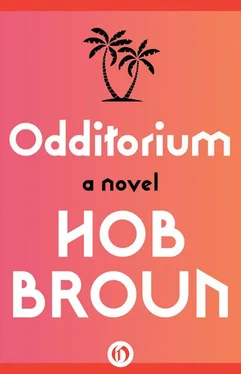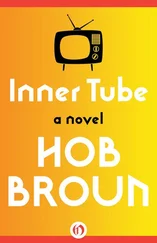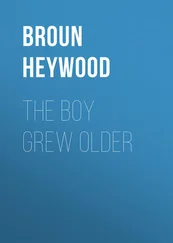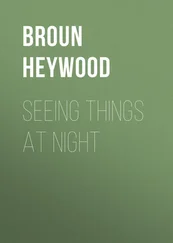Five minutes later, they closed the deal behind the pinball machine in a quiet bar. Playing it extra safe, just in case Fung had a buddy waiting out front, Christo went to the men’s room and climbed through the window. He felt unbeatable as he jogged away with a solid wad in his pocket and under it the little bracelet he’d held back for Tildy.
He tried to get the most out of this sensation; didn’t seem like he’d be feeling it again.
Tildy turned and twisted and tossed, but a comfortable position did not exist. In the lingering dementia of her illness, everything made sense: Karl sitting there prayerfully, the cooking smells that clung to the inside of her nose like nits, the long dreamy distance from anything real.
Karl’s hand on her face was a chafing annoyance but she smiled anyway, cautious of him, wondering what he must make of the breakage and displacement of the last two weeks, or if at this point it made any difference to him at all. Suddenly, without any real outward change, his touch became sexual and she, with the itchy desire of recently fevered skin, took his hand and put it between her legs, inside her drawstring pants, pressing it still for a long moment to show that she wanted nothing more, only his firm presence there. Karl obeyed, looking past her to the blotchy wall. It was nice not to feel like a husband anymore; just someone taking care of her, a partner on this stealthy trip. On clear thread, a spider floated down from the ceiling, swayed a little in free air, and disappeared out the window. That easy, out the window and gone?
“You know, I can feel your heartbeat all the way down here,” Karl said.
“Is it fast or slow?”
“Just steady and light. Like rain.”
They left the next morning, traveling by fumy yellow bus over small roads, stopping at every hamlet and water hole so that it took all day to go a hundred miles. The driver told jokes and sang and whizzed around curves trimmed with little memorial crosses. They reached Ingrato on the Rio Magdalena the following afternoon and transferred to a boat. Right away a drizzle set in, more mist than rain. Nowhere to really get away from it, so they stood in the center of the broad, open deck and cooled their tired faces, watched droplets mount up in each other’s hair. The other passengers seemed unsettled by their presence, chattering in tight little groups, openly staring. One thin-lipped man who had been looking hungrily at the pack of American cigarettes they passed back and forth (their last), hurried away embarrassed when one was offered. Tildy made up a slippery barefoot dance to go with the music from someone’s radio that just as soon turned into static. When the sun came back, Karl took his shirt off and tied it to the railing to dry, too loosely apparently, since it slipped away somewhere when he wasn’t looking. It was the only one he had and later, sitting on a coil of tarry rope by the bulkhead, his teeth chattered like castanets. The water was slow and flat and there weren’t any more people to wave and sing out from shore. The loud engines frightened beautifully colored birds out of the trees.
Little by little they lost all interest in time or destination. The strange southern light coalesced into a wall impossible to see through, beyond which there was nothing to see. And by now they weren’t fleeing anymore, had come so far there was no longer anything to get away from, but still they could not stop. This movement was something past their control or choosing. It approximated some de-evolutionary process — a six-legged mammal crawling on its belly back to the swamps.
They reached the end of the line. Now a raft carried them, a raft equipped with a small square sail. Barely lifting his eyes from the water, without a word being said, the old man pushing and steering with a long bamboo pole knew just where they belonged.
The heat that beamed down all day now rises up from the ground. Dinner scraps hiss and smoke on the embers. Legs stretching out, head on a pad of moss, Tildy inhales and hands on the homemade cigarette whose bulbous coal is reflected as two orange dots in Christo’s eyes when he turns his face to hers.
Christo has taken to rolling his tobacco in dry leaves. The results are sloppy, but better than buying cigarette papers from the Syrian. You do what you can, even out here. But he makes the rules, the Syrian, waiting in his dark store like a spider. His customers come in the evening, having put it off as long as possible, and he sells them crackers and sticks of chewing gum one at a time, measures out cornmeal with a teacup. Everyone hates the Syrian. It is the kind of intimate loathing usually reserved for a family member, the kind with its own unsmotherable voice.
Zarzuela and his obedient wife are fishing with handlines in the moonlight. He shows her a certain kind of tug to give the bait, and she looks like his granddaughter. Christo recalls asking Zarzuela why no one has done the logical thing and hacked the Syrian to pieces with a machete.
“Of course we think of it,” the old man said. “But then where would we buy our rice?”
Tildy looks through the fire’s languishing glow and sees Karl framed in the entrance to the hut. His back is turned as he repairs a tear in the palm thatch.
“It’s easiest for him.”
“What gives you that idea?” Christo says.
Her limp finger points: Karl looking intently into his hands where he is making some tool out of wire and a forked stick.
“He thinks he’s at Boy Scout camp,” Christo says.
“No, he doesn’t have to think that way. That’s why it’s easier for him.”
The cigarette has disintegrated on the ground at Christo’s feet. He lowers himself on his hands, crimps his mouth in an O to capture the last smoke. He blows some at her and in a childish voice sings, “‘Tenting tonight, tenting tonight. Tenting on the old campground.’”
Odd, the ease with which they have been absorbed into the settlement. Invading gringos, two men and a woman, certain responses were to be expected. But from the first moments — the raftsman refusing to be paid, and wading in because he wouldn’t take them any closer — they were greeted with universal inattention. No hostility or suspicion, no acceptance either, merely this passive absorption. Days and days before they found out that Zarzuela speaks English.
Don Alfonso, as he is invariably addressed, is mayor of this mute, shrunken paradise. He tells Christo things that gradually outline a solution to the riddle. The settlement is entirely made up of men and women who are fugitives. They have been on the run so long, all their lives in some cases, that they have lost fear. Hector deserted from the Guardia Nacional. Tito beat up a plantation owner. Luz escaped from a reformatory where she’d been sent for stealing hairpins. And Lita, Lita had a priest’s baby and left Barranquilla before he was twenty-four hours old. This is the enclave they have found, the rock of their refuge. No more need be known or asked of people who come here than that they are here.
Still, there is a kind of normal life. Voices get louder at the smell of cooking meat. People go almost naked, but cover their fires when the rain comes. Lita, passing by with a load of wet laundry, will smile so brightly at Tildy, then lower her eyes the moment she is noticed. Normal life: These things are hard to interpret.
“There is no place like the jungle, my friend. No place where a man is so much in control of his future.”
In the shade of his little porch, the Syrian fans himself with a wrinkled soccer magazine. The scroll of clouds that softened the morning heat has rolled itself up and Karl, stooping against the sledge handle, drinks the sweat that runs down to his lips. But the Syrian looks quite comfortable in his double-breasted serge suit with padded shoulders, his stiff white shirt and midnight blue tie. He begins to peel an orange and the smell wafts across the compound like the perfume of a woman who enters a cool bar after three sets of tennis. An orange! What is it that prevents Karl from diving at the bits of rind the Syrian tosses to the ground? Hard to say, but it’s something other than pride. Karl’s knuckles are swollen, his nails discolored from the stone wall he’s building that will someday surround the entire compound. At this rate, in another two or three years.
Читать дальше












